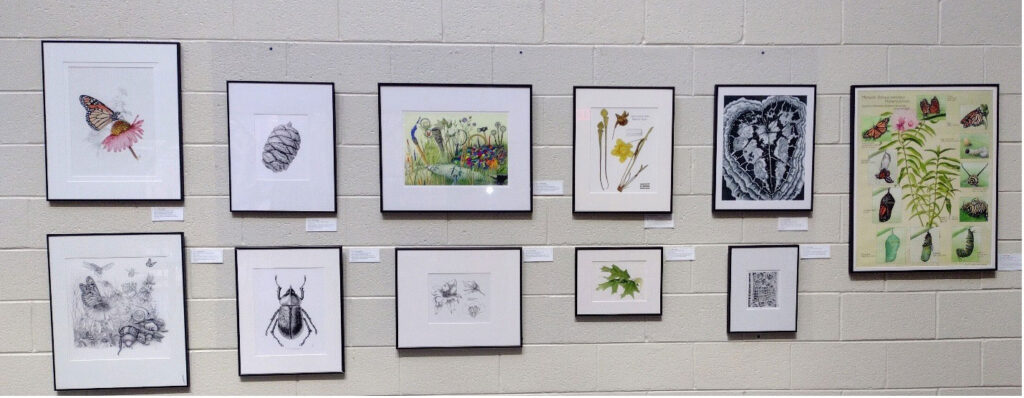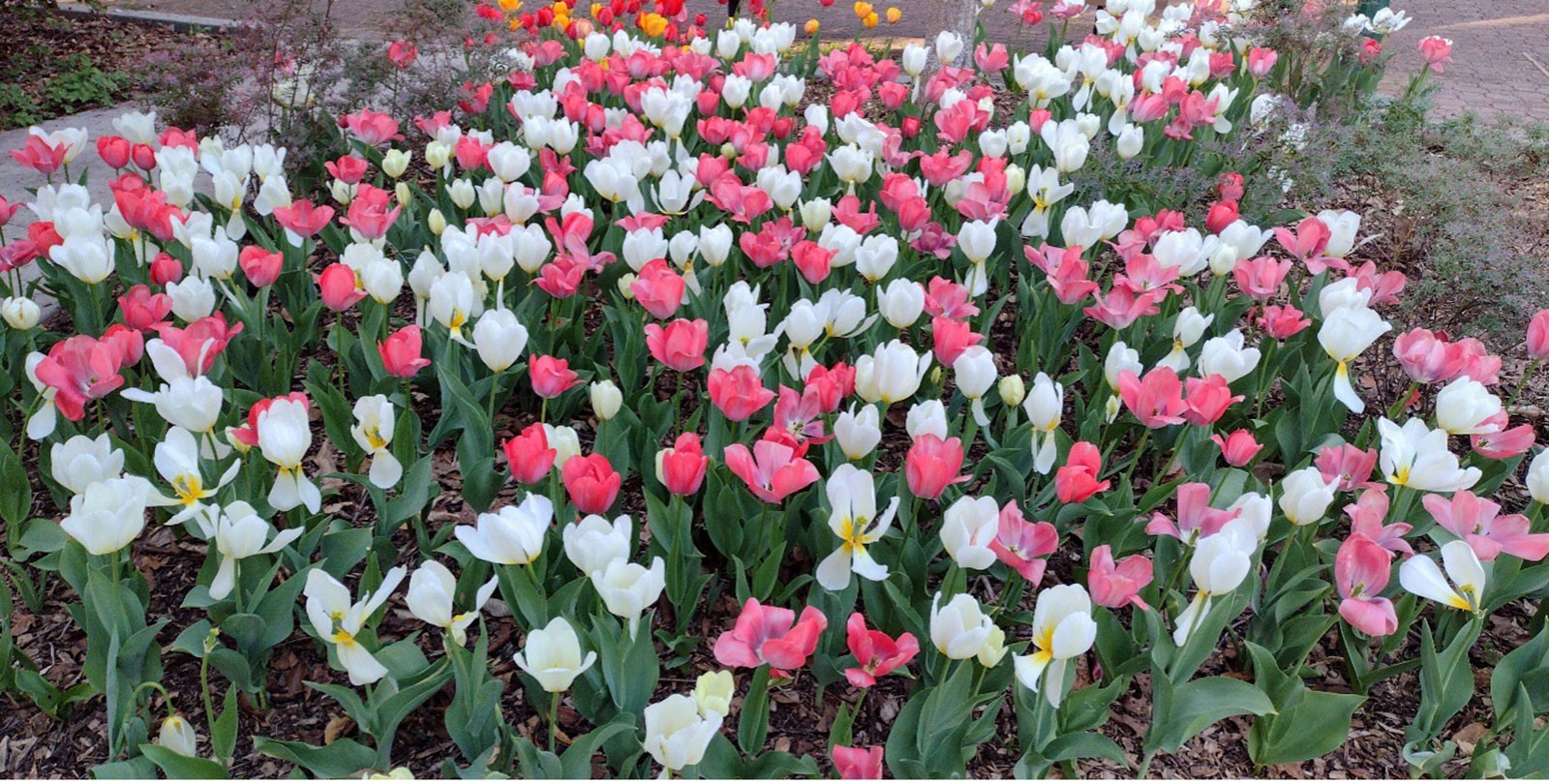With the first day of spring just around the corner, and with ample rains this past month, UGA’s campus is blooming. From redbuds and cherry blossoms to dogwoods and bottlebrush, the trees and bushes around Athens are bursting with color. One of my favorite destinations this time of year is the Georgia State Botanical Garden on South Milledge, which features stunning displays, inspiring collections, and trails for wandering and reflection. The tulips, daffodils and other spring bulbs throughout the main gardens are incredible this month.
March is Women’s History Month, dedicated to celebrating the achievements and contributions of women. Across STEM fields, women have led innumerable groundbreaking discoveries and made crucial contributions to science and engineering. Here at UGA, the accomplishments of women in the Odum School and the former Institute of Ecology are inspiring, and include past presidents of the Ecological Society of America, the Society for Freshwater Science, four UGA Distinguished Research Professors, and numerous AAAS and ESA fellows, among many other important achievements. Looking back, the Odum School’s emerita and retired faculty trailblazers include:
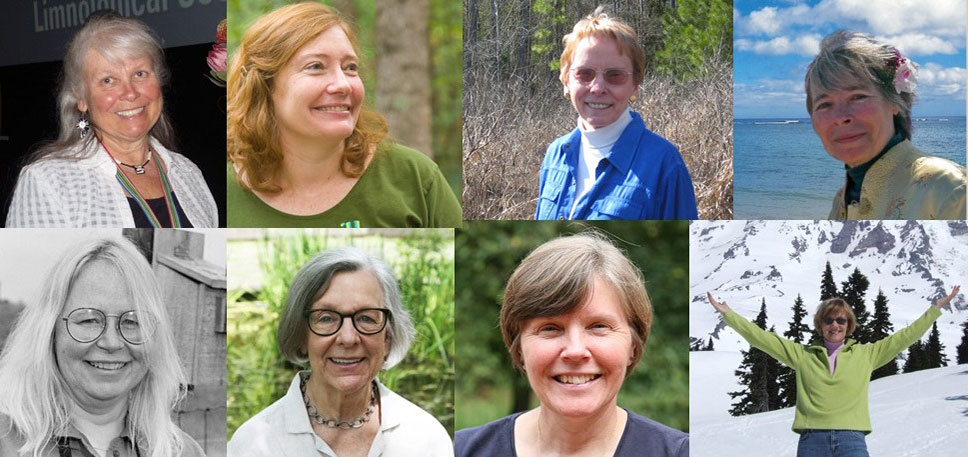
Judy Meyer (Professor Emerita since 2006), who is internationally recognized for work in urban rivers and streams; the role of headwater streams and riparian zones in river networks; studies of microbial food webs in stream ecosystems; and work linking science and policy to protect riparian habitats.
Karen Porter (Professor Emerita since 2002), who blended advanced laboratory and field techniques to study filter-feeding zooplankton in food webs and microbial communities in lakes, reservoirs, swamps and coral reefs. She is currently an active member of both the Athens-Clarke County Oconee Rivers Greenway Commission and the Oconee River Land Trust.
Rebecca (Becky) Sharitz (former Professor of Plant Biology and Senior Research Ecologist at SREL, and adjunct faculty in Ecology, deceased 2018), led internationally recognized research on freshwater and estuarine wetlands, including the responses of wetland communities to disturbances; ecological restoration of degraded wetland habitats; and the conservation of rare plants.
Patricia (Patty) Gowaty (Professor Emerita since 2008), continues to study behavior and evolution in animals and humans. She developed crucial work on sexual selection, and on the concept of reproductive compensation in population genetics.
Laurie Fowler (Senior Public Service Associate Emerita since 2020) served as founding director of policy for the River Basin Center and led initiatives at the interface of law, policy and ecology, especially in the area of watershed protection, land-use planning, environmental justice and developing greenspace protection plans.
Carol Hoffman (Public Service Assistant, retired in 2016) served as undergraduate program coordinator during the launch of Ecology’s AB degree program and engaged in public education and outreach with the Georgia Museum of Natural History, River Basin Center and the State Botanical Garden of Georgia.
Kathryn Hatcher (Public Service faculty member, retired 2006), studied water resources planning and management, developed computer models for predicting natural resource systems responses to environmental change, and ran the Georgia Water Resources Conference for many years before the River Basin Center took over this role.
Women staff members were also foundational to the mission of the Institute of Ecology in its early decades and helped build the Institute’s supportive and collaborative community. A few notable individuals include former librarian and archivist Terry Camp and PR coordinators Barbara Smalley, Lorraine Edwards and Janice Sand—who collaboratively launched the first Ecology Graduate Student Symposium in 1995 together with Liz Kramer, Anne Dix and Bob Hall. Ecology’s longest-serving staff member was Thelma Richardson (deceased 2011), a pioneer in the use of computers in ecological science. She was a statistician and computer technologist in Ecology for over 40 years and was also co-founder of the Georgia Sea Turtle Cooperative.
The Odum School recognizes these and other women for their transformational roles in building the Ecology program at UGA. At the same time, we celebrate the many women faculty, staff, students and alumni who continue to lead the way in ecological research, innovation, teaching, service and community engagement.
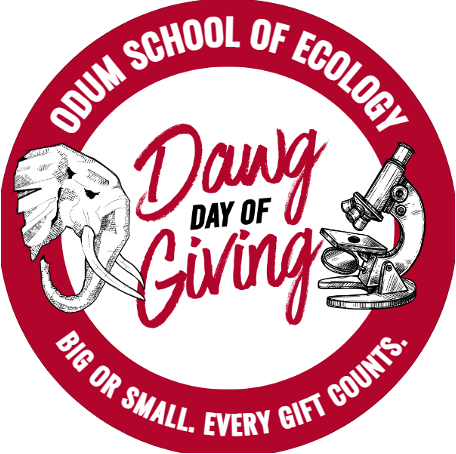
Dawg Day of Giving is coming up on Thursday, March 30! We’re calling all Eco-Dawgs to support the Odum School of Ecology with a gift of ANY size. For giving day this year, Ecology is highlighting the Graduate and Undergraduate Support Funds that enhance our experiential learning awards. These funds provide critical support for student research, study away, capstone projects, conference travel and more. On March 30, Ecology folks can find us handing out treats and swag (aided by Ecology’s Student Ambassadors) at our table in the main Ecology Building between 10 a.m and 2 p.m. (to encourage Senior Signature gifts and gifts from faculty/staff), and later at the Georgia Center from 3 to 5 p.m. for the Georgia Water Resources Conference. With the collective support of Ecology’s students, staff, alumni and friends, we can propel the Odum School’s support of students and programs to new heights!
The Odum School’s alumni board working group is ready to transition to the official Ecology Alumni Board of Members, with a call for the first round of nominations announced last week. With over 1,500 living alumni from five degree programs (BS, AB, PhD, MS-Ecology, and MS-ICAS/CESD), the reach of Ecology’s alumni extends far beyond UGA’s campus and is shaping the future of ecology and conservation. The Odum School welcomes nominations (including self-nominations) to form an Alumni Board of Members to be selected by our current working group. The 13 inaugural Alumni Board members will serve staggered three-year terms and will work together to develop and implement a dynamic alumni engagement vision that supports the mission, programs and culture of the Odum School of Ecology. Nominations are due April 1 and can be submitted online.
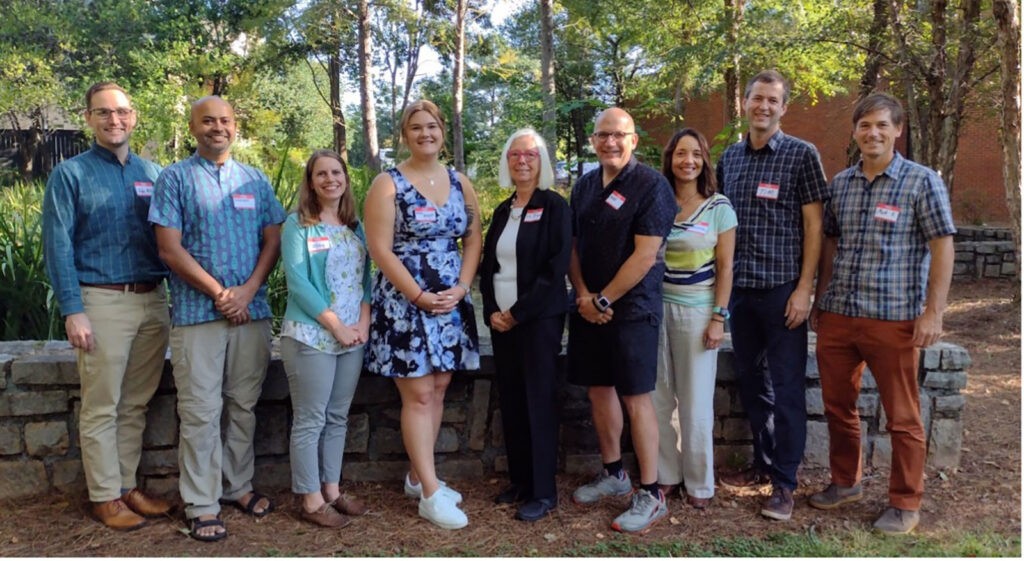
Now in its second semester, Ecology’s Student Ambassador Program just solicited applications for the next academic year. This program offers Ecology majors (A.B. or B.S.) the opportunity to serve as leaders within the Odum community. Ambassadors assist with college and university-sponsored special events; meet with prospective students and their families and provide tours; help organize and attend annual undergraduate student retreats at the Odum cabin; develop content for Ecology’s social media accounts; assist with special events; and speak about academic programs and student opportunities in Ecology. You’ll see Ecology’s student ambassadors at convocation ceremonies, special events, Waffle Wednesday, and campus visits with prospective students. As part of this program, ambassadors obtain leadership experience and professional development, as well as building relationships with alumni, academic leaders and fellow students. I am grateful to the student ambassadors for their commitment to the Odum School community and thank program advisor, lecturer and academic coordinator Alli Injaian for launching and coordinating this new program.
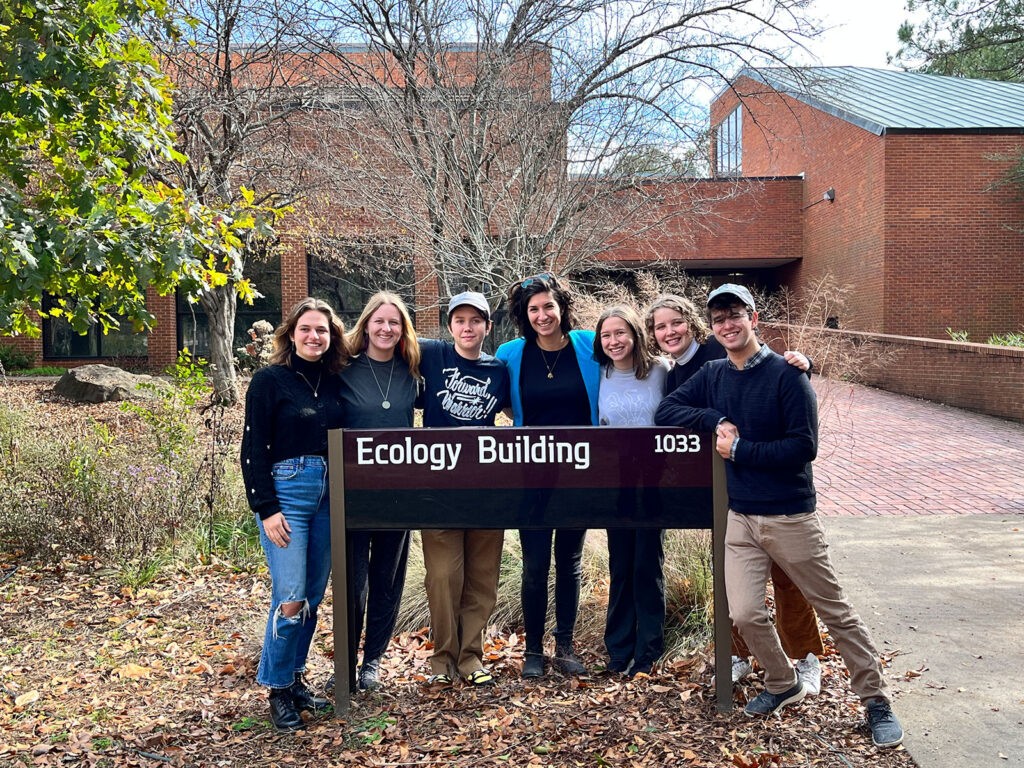
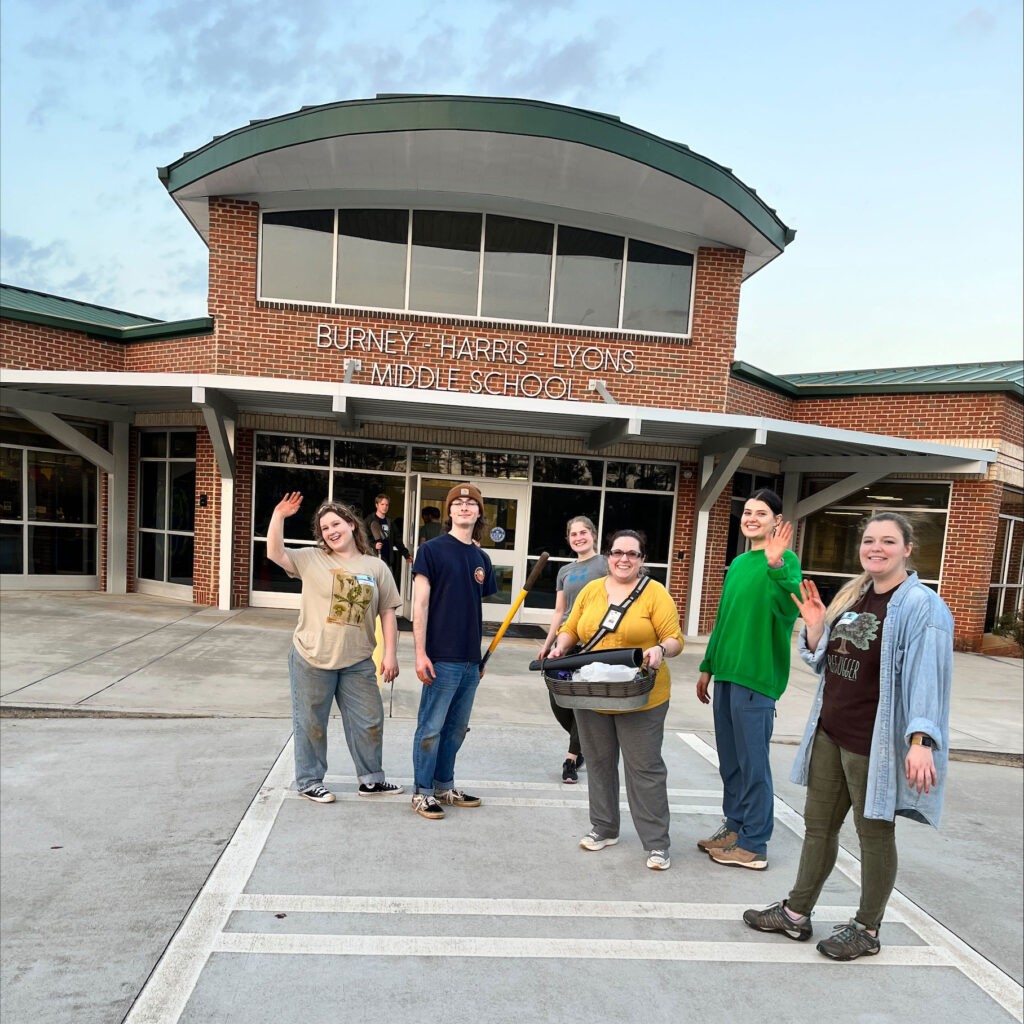
Ecology faculty and students connect with the local community through service and outreach in many ways, including the Odum School’s two service-learning courses: ECOL 3770S Urban Ecology and ECOL 4900S Environmental Practicum. These courses support and mentor student teams as they develop and carry out group projects with community stakeholder partners. For one of these courses, instructor Alli Injaian and middle school art teacher Samantha George launched a collaboration to provide opportunities for students at Burney-Harris-Lyons Middle School to engage with UGA undergraduates in developing knowledge of ecology and its connections to art. Joint projects include identifying, planting and labeling trees on the school’s grounds to create a ‘campus arboretum.’ The students also developed creative artwork that illustrates ecological concepts, species, and habitats. I love hearing about the projects that students in Ecology’s service-learning courses undertake at the end-of-semester class symposia and through seeing the products of their work displayed online and in parts of the Ecology Building, UGA campus, and Athens-area project sites.
So many exciting events are just around the corner in March and April! The 2023 Georgia Water Resources Conference is coming up on March 30-31 at the Georgia Center for Continuing Education. Sponsored by the River Basin Center, the meeting provides an open forum for engagement on water policy and management within the state of Georgia.
On April 4, at 4 p.m. in the Ecology Auditorium, Ivette Perfecto will deliver the 37th Odum Lecture. Her talk, “Food Systems at a Crossroads: Producing Food and Conserving our Planet,” will be followed by a reception in the Ecology main lobby and courtyard. Ecology’s Diversity, Equity and Inclusion Committee has organized a workshop on April 7 to address “Five Shifts in Research and Teaching Practices towards a More Inclusive and Ethical Ecology,” led by Madhusudhan Katti, a professor of ecology at North Carolina State University. And on Friday April 21, the Odum School’s annual Spring Fling Awards banquet is scheduled from 6-10 p.m., at Flinchum’s Phoenix, to celebrate Ecology’s SUPER scholarship and award recipients. Friends and alums of the Odum School can keep with our events calendar online, and note that many of our events have the option for online/zoom participation.
I look forward to seeing everyone at these and other events—and I would love to hear from Odum School alumni and friends near and far—so wherever you are, please share your news with us, and know that you are welcome to come visit with us the next time you are in Athens!
